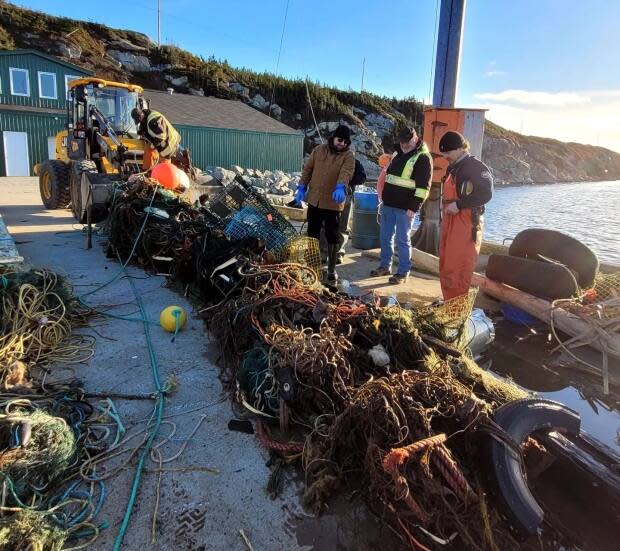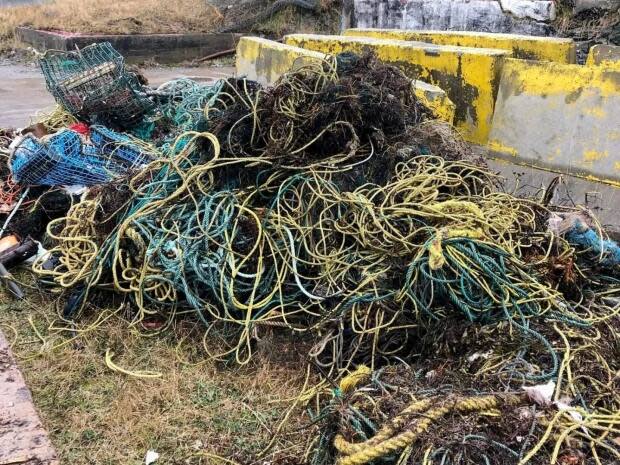This group is cleaning up fishing gear scattered by Fiona in Newfoundland and giving it new life


Cleanup efforts from post-tropical storm Fiona continue on Newfoundland's southwest coast nearly two months after the storm devastated the area, but one group is focusing its effort on the fishing industry.
A non-profit group based in Gros Morne National Park is collecting lost fishing gear littered along the southwest coast so that it doesn't become "ghost gear" — fishing gear lost or left behind in the ocean that can become a hazard for the environment and sea life.
Many fish harvesters in the area lost gear as the storm surge scooped up and scattered pieces from sheds along the coast.
"So far we're a little over 7,000 pounds in around 10 days of hauling. It's a lot more than we anticipated," said Ian Stone, a team lead for the Atlantic Healthy Oceans Initiative (AHOI) crew.
"We set a goal of 10,000 pounds over 20 days and it's 7,000 in 10 days. It definitely exceeded what we thought was possibly out there but there's definitely lots of work to do."
AHOI applied for and received from funding from DFO to do the work until March. Stone co-owns a company called Tour Gros Morne. The two sides partnered for the initiative with about $70,000 in funding.
The crew is also working with diver Shawn Bath, who runs the Clean Harbours Initiative and has been cleaning up harbours for years with money from donations.

Stone said his crew is finding a little bit of everything in the water, from ropes to traps, lobster pots to salmon nets, after fishing sheds were completely swept from the shore during the late September storm.
"We occasionally find a motor or two. It's been interesting. Of course, we do also find some things that have been put into the ocean long before Fiona's fury came through," he said.
The crew sets its goals days in advance.
Stone said they try to reach local fishermen who show them where their shed and gear was before the storm and where it might have ended up. From there, Stone and his team get to work.
When they do come across intact gear, they try to return it to its owner. Gear that is unusable gets recycled by a company in New Brunswick called PLAEX Building Systems, which melts down plastic netting to create eco-bricks for building.

"Our most successful return is typically the lobster pots, those still have the ropes inside and many are still in reusable condition," said Stone.
"We are going to be shipping a lot of the rope material and net and whatnot to New Brunswick to be repurposed. So all of that is going to be a first time for this sort of thing. For us, we're really kind of setting the ground rules for what can happen to fishing gear as opposed to it ending up in waste disposal sites."
The cleanup work will carry on through the winter.
Stone said remotely operated vehicles, known as ROVs, will enter the fold this spring to help map the area in which the team is focusing its effort.
"We can only estimate that there's probably tens, possibly hundreds of thousands of pounds of gear that has been lost. This is definitely a long-term initiative, and fortunately, DFO does agree with that," said Stone.
"There is additional funding that is supposed to be coming out for 2023 into 2024. Unfortunately the storm will really live on under water for many years to come."

 Yahoo Movies
Yahoo Movies 